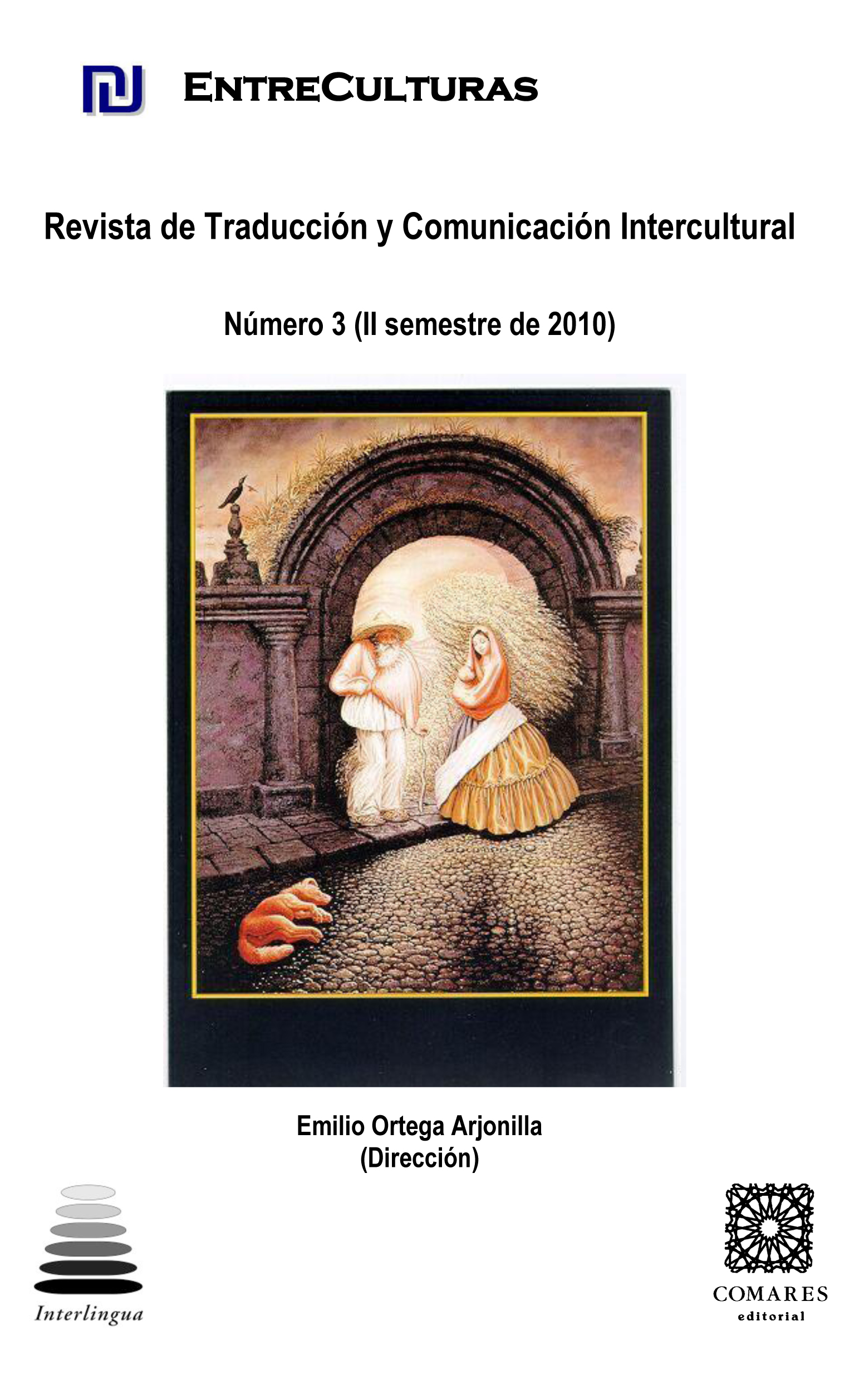SOBRE ALGUNOS MITOS DEL VOCABULARIO TÉCNICO: UN TRADUCTOR ADVERTIDO VALE POR DOS
DOI:
https://doi.org/10.24310/Entreculturasertci.vi3.11752Keywords:
Translation teaching, specialized languages, real terminologyAbstract
In our article, we are analyzing the gap between the theory of terminology, the academic discipline of translation studies, and real terminology, as is specifically used in a professional context and is can be observed in reality. In fact, what has long been presented as cornerstones of terminology in books for translators is nothing but a set of principles almost always prescriptive about what terminology should be, and not what it actually is. In this paper we are analyzing some of these myths and idealizations that have spread through terminology as an academic discipline through real examples in French and Spanish, and from which we should warn students of the new courses in translation: the problems of inaccuracy, instability, completeness and consistency, among others.
Downloads
Metrics
References
DEPECKER, L. et alii (2007) (dir.): Terminologie et ontologie : descriptions du réel, Actes du 4e colloque de la Société française de terminologie, Paris : Le Savoir des Mots nº4
DEPOVERE, P. (2002): La classification périodique des éléments, Paris: DeBoeck
FELBER, H. (1987): Manuel de terminologie, Organisation des Nations Unies pour l’éducation et la culture (Unesco), Paris : Infoterm
GAUDIN, F. (1993): Pour une socioterminologie. Des problèmes sémantiques aux pratiques institutionnelles, Rouen: Publications de l’Université de Rouen, nº182
NAVARRO, F.A. (1997): Traducción y lenguaje en medicina (2ª edición), Fundación Doctor Antonio Esteve: Barcelona
Real Academia Española (2001): Diccionario de la lengua española (22ª edición), Madrid: Espasa-Calpe
ROBERT, P., REY, A., REY-DEBOVE, J. (2001): Le Petit Robert, Dictionnaire analogique et alphabétique de la langue française, versión
SAGER, J. C. (1998): « Terminología y traducción », in M.T.Cabré (ed), Cicle de conferències i seminaris 97-98. Lèxic, corpus i diccionaris, IULA, Barcelona, 2000, pp. 123-137
VICENTE, C. (2006): « Développement d’une lexicologie orientée vers la traduction spécialisée: traitement de la langue spécialisée du commerce électronique en français et en espagnol », Lille : Atelier national de reproduction des thèses. 460 pages. ISBN: 2-7295-6122-6.
WÜSTER, E. (1998): Introducción a la teoría general de la terminología y a la lexicografía terminológica, Barcelona: IULA, (Ed. Teresa Cabré)
Downloads
Published
How to Cite
Issue
Section
License
All contents published in Entre culturas. Revista de traducción y comunicación intercultural are protected under the Creative Commons Attribution-NonCommercial-ShareAlike 4.0 International (CC BY-NC-SA 4.0) license. All about this license is available in the following link: <http://creativecommons.org/licenses/by-nc-sa/4.0>
Users can copy, use, redistribute, share and exhibit publicly as long as:
- The original source and authorship of the material are cited (Journal, Publisher and URL of the work).
- It is not used for comercial purposes.
- The existence of the license and its especifications are mentioned.
There are two sets of authors’ rights: moral and property rights. Moral rights are perpetual prerogatives, unrenounceable, not-transferable, unalienable, imprescriptible and inembargable. According to authors’ rights legislation, Entreculturas. Revista de traducción y comunicación intercultural recognizes and respects authors moral rights, as well as the ownership of property rights, which will be transferred to University of Malaga in open access. The property rights are referred to the benefits that are gained by the use or the dissemination of works. Entreculturas. Revista de traducción y comunicación intercultural is published in an open access form and it is exclusively licenced by any means for doing or authorising distribution, dissemination, reproduction, , adaptation, translation or arrangement of works.
Authors are responsable for obtaining the necessary permission to use copyrighted images.





7.png)
